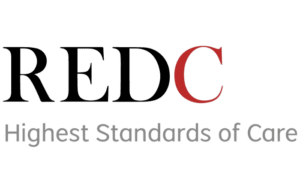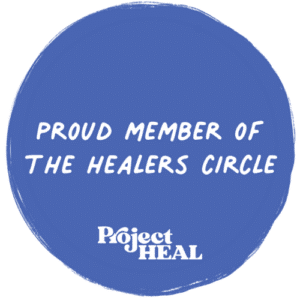Many treatment options are available for individuals suffering from eating disorders, but knowing which one is right for you can be a challenge. Residential treatment programs are one option to consider.
Although being away from home in a specialized treatment center may sound scary, it is an effective place to recover from an eating disorder and has many advantages.
What Is Residential Eating Disorder Treatment?
Residential eating disorder treatment refers to a level of care when individuals temporarily live in a specialized facility or treatment center for an extended period. This type of treatment offers around-the-clock care and support for medically stable patients. Care includes therapy, nutritional counseling, meal supervision, and a structured environment to promote recovery. Residential treatment aims to provide a safe, therapeutic space for individuals to focus on their recovery and develop skills to manage their eating disorders. Treatment is available for individuals presenting with all types of eating disorders, such as anorexia nervosa and bulimia nervosa (1).
Top 5 benefits of residential eating disorder treatment
Residential programs allow you to continue healing and learn how to manage your eating disorder in a more supervised environment than you’d find at home. The advantages of residential treatment include the following five benefits:
- Structure. Residential programs offer a highly structured environment that helps individuals establish and maintain routines. The structured setting provides a sense of stability and consistency that promotes healthy habits and behaviors.
- Preparation. You will get to navigate your eating disorder treatment and experience real-life, home situations like preparing your meals. However, you can do this with 24/7 support from a staff of healthcare professionals trained in eating disorders.
- Support. The program includes extensive guidance and supervision, psychotherapy sessions, nutrition counseling, and meal support. Professional staff members are available to assist with any challenges that may arise as you navigate recovery.
- Community. You will also benefit from interacting with others who share similar struggles and find much-needed support from your peers that you may not get at home.
- Dual diagnosis treatment. Although individuals in residential homes will have primary diagnoses of eating disorders, facilities are equipped to treat dual diagnoses of mental health disorders, so your personalized treatment plan will address all of your mental health needs (2).
Difference Between Residential Eating Disorder Programs and Other Types of Treatment
Residential eating disorder treatment falls in between inpatient (hospitalization) and outpatient treatment programs. It is a way to transition between levels of treatment and is ideal for medically stable individuals who need additional treatment and supervision in managing their eating disorders.
Inpatient treatment is the most intensive, and care occurs in a hospital for individuals who are medically unstable and at risk for life-threatening consequences. In partial hospitalization or day programs, individuals usually spend six or more hours daily in the program, five to six days a week. Intensive outpatient programs provide treatment for a few hours a day, three to four days a week, so individuals can continue to attend school or work. Finally, outpatient treatment typically involves meeting with your eating disorder healthcare providers once a week (3).
What to Expect from Residential Eating Disorder Treatment
The environment of a residential treatment program is that of a home-like setting with bedrooms, a living area, a dining room, and a kitchen set within a residential neighborhood. Housing is separated into adult and adolescent residences. Residents of the program will work with a treatment team that includes psychiatrists, therapists, and dietitians. Treatment length varies from person to person and is determined by your treatment team’s assessments of your specific needs and goals (2).
Who Would Benefit Most from Residential Eating Disorder Treatment?
Appropriate treatment always depends on individual circumstances. Residential programs are suitable for individuals not 100% ready to recover at home. They may lack the motivation or the structure needed for eating disorder recovery and still require supervision at meals. It’s best for individuals who would benefit from around-the-clock support in an encouraging and structured environment and need more time to practice their new skills and behaviors before transitioning to home.
If you are looking to reclaim your life through eating disorder recovery, our compassionate team is here to support you on your journey. Take the first step toward healing and find an Aster Springs treatment center near you.
References
- Milco, A. (2022). Finding the right treatment for your eating disorder. National Eating Disorders Association. https://www.nationaleatingdisorders.org/
- Peckmezian, T., & Paxton, S. J. (2020). A systematic review of outcomes following residential treatment for eating disorders. European Eating Disorders Review, 28 (3), 246-259. doi: 10.1002/erv.2733. https://www.ncbi.nlm.nih.gov/pmc/articles/PMC7216912/
- University of California San Diego: Eating Disorders Center for Treatment and Research. (n.d.). Levels of care. Retrieved October 8, 2023, from, https://eatingdisorders.ucsd.edu/about/levelsofcare.html
Author bio:
Kate Delaney Chen, BSN, RN-BC is a healthcare writer and registered nurse with over 17 years of bedside experience. She specializes in Psychiatric Nursing and Nephrology and currently works at a nationally recognized Inpatient Eating Disorders Program.





